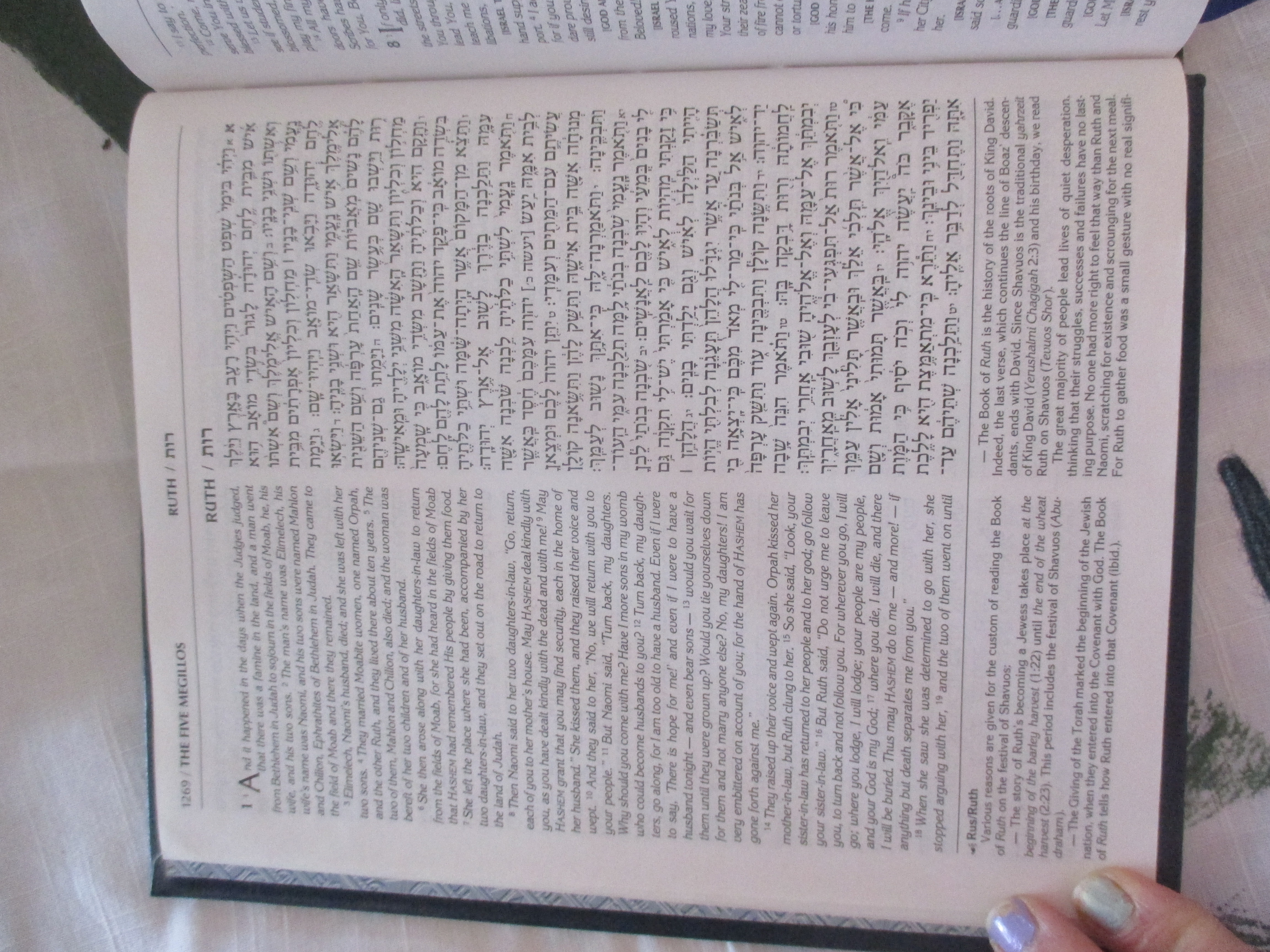Maybe I should call this post:
Jerusalem Post Promotes Intermarriage
I got very aggravated on Shavuot after reading the first/main article in the Jerusalem Post’s Holiday Magazine, LOVING THE STRANGER: THE TIMELESS MESSAGE OF THE STORY OF RUTH by Lee Caspi, because Caspi got it all wrong.
On my first reading, I focused on Caspi’s totally mistaken idea that The Scroll of Ruth is a story promoting the acceptance of strangers/refugees, and during classes I attended on Shavuot, I kept reminding people that Naomi had returned to her original home where she had land. Her problem was to find a way to return to her family, so she and her daughter-in-law Ruth wouldn’t starve. Ruth was a Jew, a convert who had pledged her allegiance to Naomi’s god and Land. When she gathered grain, it wasn’t to send it back to Moav. Caspi’s parallel to an Eritrean friend sending money to family in Eritrea is a total distortion of Ruth’s story.
Boaz is praised for helping a family member who had fallen on hard times. As soon as he became aware of Ruth’s identity– widow of a clansman, he told his workers to be extra kind and generous to her. She and Naomi were not strangers. They were family!
And now I just reread Caspi’s article and there is another very serious problem. I find it outrageously sacrilegious, since it promotes intermarriage, distorting the way marriage was done in those days.
“Today, for various historical reasons, much emphasis is put on the importance of Jews marrying within the faith, keeping matters in our ethno-religious group. But this is, to a degree, a deviation from our holiest text, in which several examples can be found of successful intermarriages, some so successful that they resulted in one of the biblical figures known to have been most beloved by God – King David. This is not to say that the story of Ruth encourages us to marry outside the Jewish faith, but I believe it teaches us that good things can sometimes be gained from doing so.” Jerusalem Post
I must repeat that Ruth was a convert to Judaism, and once someone has accepted the “yoke” of Torah, it is forbidden to refer to the person by by his former religious/ethnic identity. And the Boaz-Ruth marriage was not a love match. It was more a business deal. Boaz had promised to arrange a marriage between Ruth and a relative of Elimelech. When no other suitable candidate agreed, then Boaz married her, and according to Biblical scholars he didn’t live long after. And according to the Biblical text, the baby was considered as Naomi’s; Ruth is not mentioned after the birth.
In one of the classes I attended on Shavuot, it was stressed that the baby born to Boaz and Naomi/Ruth brought the Tribe of Judah back to life. It had been dying out. In this story, like many of the Davidic Messianic Line, we see strong determined women who took the initiative in their relationships with the men of Judah. Naomi and Ruth are following in the footsteps of Leah and Tamar.
It’s disappointing that the editors of the Jerusalem Post can’t find someone more knowledgeable about Judaism and the Bible to write about the Scroll of Ruth in their Shavuot Supplement.


Is it not good that the strictly accurate story has evolved into a fable with a moral – to take a stranger in. When a stranger comes to you and is thirsty give him drink; when he is hungry give him food, when he is cold give him a blanket; when he is tired, give him a bed; when he comes for refuge take him in. For we were strangers in the land of Egypt. Tikkun olam, tzedakah. He who saves one life saves the world. At the end of your days go to the Lord knowing that you have been merciful and have done good.